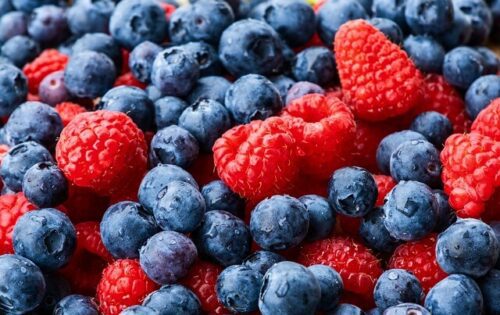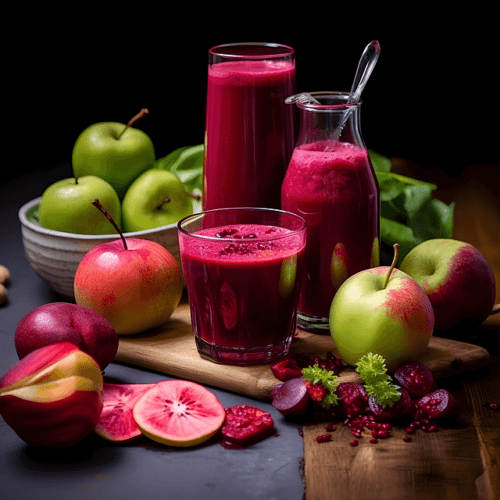Winter often tempts us with indulgent comfort foods and a more sedentary lifestyle. The cold months make it easy to fall into unhealthy eating habits, which can derail weight loss goals. However, with the right approach, a well-planned winter diet for weight loss can keep you on track, boost your metabolism, and leave you feeling energized even during the coldest months.
In this guide, we will explore 7 effective strategies for a successful winter diet for weight loss. These tips focus on using seasonal produce, smart eating habits, and choosing nutrient-dense meals to help you shed those extra pounds and stay healthy all winter long.

Why Focus on a Winter Diet for Weight Loss?
Winter is a season of hearty meals and holiday feasts, which can lead to overeating and weight gain. A well-thought-out winter diet for weight loss involves choosing foods that nourish your body, support your metabolism, and help you stay full without overindulging. This season also provides access to a variety of nutritious winter produce that can be seamlessly integrated into your weight loss plan.
By staying mindful of your diet and making smart choices, you can enjoy the season while working toward your weight loss goals.
Start Your Day with a Warm, Protein-Rich Breakfast
A protein-rich breakfast is a key component of a winter diet for weight loss. Cold weather often increases cravings for high-calorie foods, so starting your day with a filling breakfast keeps hunger at bay and reduces the temptation to snack throughout the day.
Why choose protein for breakfast?
- Protein stabilizes blood sugar, helping you avoid energy crashes and sugar cravings.
- It promotes muscle growth, which is essential for maintaining a healthy metabolism.
Winter breakfast ideas for weight loss
- Oatmeal with Greek yogurt and berries: Oats are fiber-rich and filling, while Greek yogurt adds protein.
- Egg and vegetable scramble: Eggs are an excellent source of protein, and adding spinach, peppers, and mushrooms boosts the meal’s fiber content.
- Quinoa porridge: Quinoa is a complete protein, and it can be cooked as a porridge with almond milk, cinnamon, and nuts for added flavor and nutrients.

Incorporate Fiber-Rich Foods for Satiety
Fiber is one of the most important components of a successful winter diet for weight loss. It helps you feel full longer, reduces hunger pangs, and prevents overeating. Fiber-rich foods also promote good digestion and help regulate blood sugar levels.
Why focus on fiber in winter? During the colder months, many people gravitate toward high-carb comfort foods. Including fiber in your meals adds bulk to your diet without extra calories, keeping you satisfied without overindulging.
Top fiber-rich foods to add to your winter diet
- Root vegetables: Carrots, parsnips, and sweet potatoes are hearty, filling, and perfect for winter meals.
- Legumes: Lentils, chickpeas, and beans are excellent sources of fiber and plant-based protein.
- Winter greens: Kale, spinach, and Swiss chard are nutrient-dense greens that support digestion and keep you full longer.
Warm, Nutrient-Dense Soups as a Staple Meal
Soups are a cornerstone of any winter diet for weight loss. They provide warmth and comfort while being low in calories and packed with nutrients. A broth-based soup filled with vegetables, lean proteins, and legumes is not only satisfying but also ideal for supporting your weight loss journey.
Why soups work for winter weight loss
- They are low in calories but high in volume, making them an excellent choice for filling meals.
- Soups can be made in bulk and stored for quick, healthy options during busy days.
Winter soup ideas for weight loss
- Vegetable and lentil soup: Packed with fiber, protein, and vitamins, this soup is filling and nutritious.
- Chicken and vegetable broth: Lean chicken breast adds protein, while vegetables provide fiber and nutrients.
- Butternut squash soup: Rich in vitamins A and C, butternut squash is low in calories and has a naturally sweet flavor that satisfies cravings.

Opt for Seasonal Winter Vegetables and Fruits
Winter is the season for a variety of nutrient-packed vegetables and fruits that support weight loss. These seasonal foods are rich in vitamins, minerals, and antioxidants, which help your body function optimally, even during the colder months.
Benefits of eating seasonal produce
- Seasonal fruits and vegetables are fresher, tastier, and often more affordable than out-of-season alternatives.
- They are packed with nutrients that support your immune system and overall health, which is important during winter.
Best winter vegetables and fruits for weight loss
- Brussels sprouts: High in fiber and low in calories, Brussels sprouts are perfect for roasting or adding to salads.
- Cabbage: This cruciferous vegetable is filling and low in calories, making it ideal for soups and stir-fries.
- Citrus fruits: Oranges, grapefruits, and lemons are full of vitamin C, which supports fat-burning and boosts your immune system.
Hydrate with Herbal Teas and Warm Water
Staying hydrated is essential for any diet, and it’s just as important during the winter. The cold weather often leads to reduced water intake, which can slow down metabolism and make weight loss more difficult. While it may be harder to drink cold water in winter, switching to warm drinks like herbal teas and warm water can keep your body hydrated and your metabolism active.
Hydration tips for your winter diet
- Herbal teas: Ginger tea, green tea, and chamomile tea are not only hydrating but also provide additional health benefits. Green tea, for example, is known to boost metabolism and assist with fat burning.
- Warm water with lemon: Starting your day with a glass of warm water and lemon helps kickstart digestion and keeps you hydrated.
Limit Processed and Sugary Foods
Winter brings with it an abundance of sugary treats and processed snacks, especially during the holiday season. These foods are typically high in empty calories, refined sugars, and unhealthy fats, all of which contribute to weight gain. Eliminating or significantly reducing these foods in your winter diet for weight loss is crucial to staying on track.
Why processed foods hinder weight loss
- Processed foods are often high in refined carbohydrates, which cause blood sugar spikes and lead to increased cravings.
- They offer little nutritional value and are usually calorie-dense, leading to overeating.
Healthy alternatives to satisfy cravings
- Homemade snacks: Instead of reaching for cookies or chips, try homemade energy bites made with oats, nuts, and dried fruits.
- Fruit desserts: Baked apples or pears with a sprinkle of cinnamon make for a sweet, healthy winter treat.
- Dark chocolate: In moderation, dark chocolate can satisfy your sweet tooth while providing antioxidants and less sugar than milk chocolate.

Stay Active with Indoor Workouts
While diet plays a critical role in weight loss, staying active during winter is just as important. The cold weather may make outdoor activities less appealing, but there are plenty of indoor exercises that can complement your winter diet for weight loss.
Why exercise matters in winter
- Physical activity boosts metabolism, burns calories, and helps maintain muscle mass, which is crucial for long-term weight loss success.
- Regular exercise also improves mood, reduces stress, and supports overall well-being, which can be especially important during the darker winter months.
Indoor workout ideas
- Yoga: Yoga is a low-impact way to stay active while building strength, flexibility, and mental clarity.
- Strength training: Using resistance bands, dumbbells, or bodyweight exercises can help you build muscle and burn fat.
- HIIT (High-Intensity Interval Training): HIIT workouts are quick and effective, allowing you to burn calories in a short amount of time.
Conclusion
With the right approach, winter can be a perfect time to focus on your health and fitness goals. By following a well-structured winter diet for weight loss that includes protein-rich meals, fiber-packed vegetables, and hydrating drinks, you can stay full, satisfied, and on track to achieve your weight loss goals.
Incorporating seasonal produce, nourishing soups, and regular exercise will not only help you lose weight but also improve your overall health during the colder months. This winter, make mindful choices, enjoy hearty but healthy meals, and embrace a winter diet for weight loss that keeps you energized and feeling great all season long.

FAQs
What are the best foods for a winter diet for weight loss? The best foods for a winter diet for weight loss include lean proteins like chicken and fish, fiber-rich vegetables such as spinach, kale, and broccoli, and whole grains like quinoa and brown rice. These foods are filling, nutrient-dense, and low in calories.
Can I lose weight during the winter months? Yes, you can lose weight during the winter by following a balanced winter diet for weight loss that includes seasonal fruits and vegetables, lean proteins, and healthy fats. Staying active and drinking enough water is also crucial.
How can I control my cravings in winter? To control cravings, eat fiber-rich foods that help keep you full for longer. Warm herbal teas, protein-packed snacks like nuts and seeds, and soups can also curb hunger between meals in your winter diet for weight loss.
Is soup good for weight loss in winter? Yes, soups made with vegetables, lean meats, or legumes are excellent additions to a winter diet for weight loss. They are filling, low in calories, and packed with nutrients, making them a great option for meals.
What should I avoid in my winter diet for weight loss? Avoid processed and sugary foods like candy, pastries, and fried snacks in your winter diet for weight loss. These foods are high in empty calories and can lead to weight gain.
How does staying hydrated help in winter weight loss? Staying hydrated is essential in a winter diet for weight loss because it helps maintain metabolism, reduces cravings, and flushes out toxins from the body. Even if you don’t feel as thirsty, drinking water regularly is important.
Are winter fruits effective for weight loss? Yes, winter fruits like oranges, grapefruits, and pomegranates are low in calories and rich in vitamins and antioxidants. Including these fruits in your winter diet for weight loss can help burn fat and boost your immune system.
How important is exercise with a winter diet for weight loss? Exercise is vital alongside a winter diet for weight loss. Physical activity helps burn calories, boost metabolism, and improve overall health. Even simple indoor workouts can be effective during winter.
Can I enjoy comfort foods in a winter diet for weight loss? Yes, you can enjoy comfort foods in moderation. Choose healthier versions of your favorite dishes by using whole grains, lean proteins, and healthy fats to create filling meals that support your winter diet for weight loss.
How often should I eat in a winter diet for weight loss? Eating smaller, balanced meals every 3-4 hours is ideal for maintaining energy levels and preventing overeating in a winter diet for weight loss. Focus on nutrient-dense meals to keep you satisfied.


Leave a Reply to 10 Essential Energy-Saving Tips for Winter: Keep Warm and Save Money Cancel reply